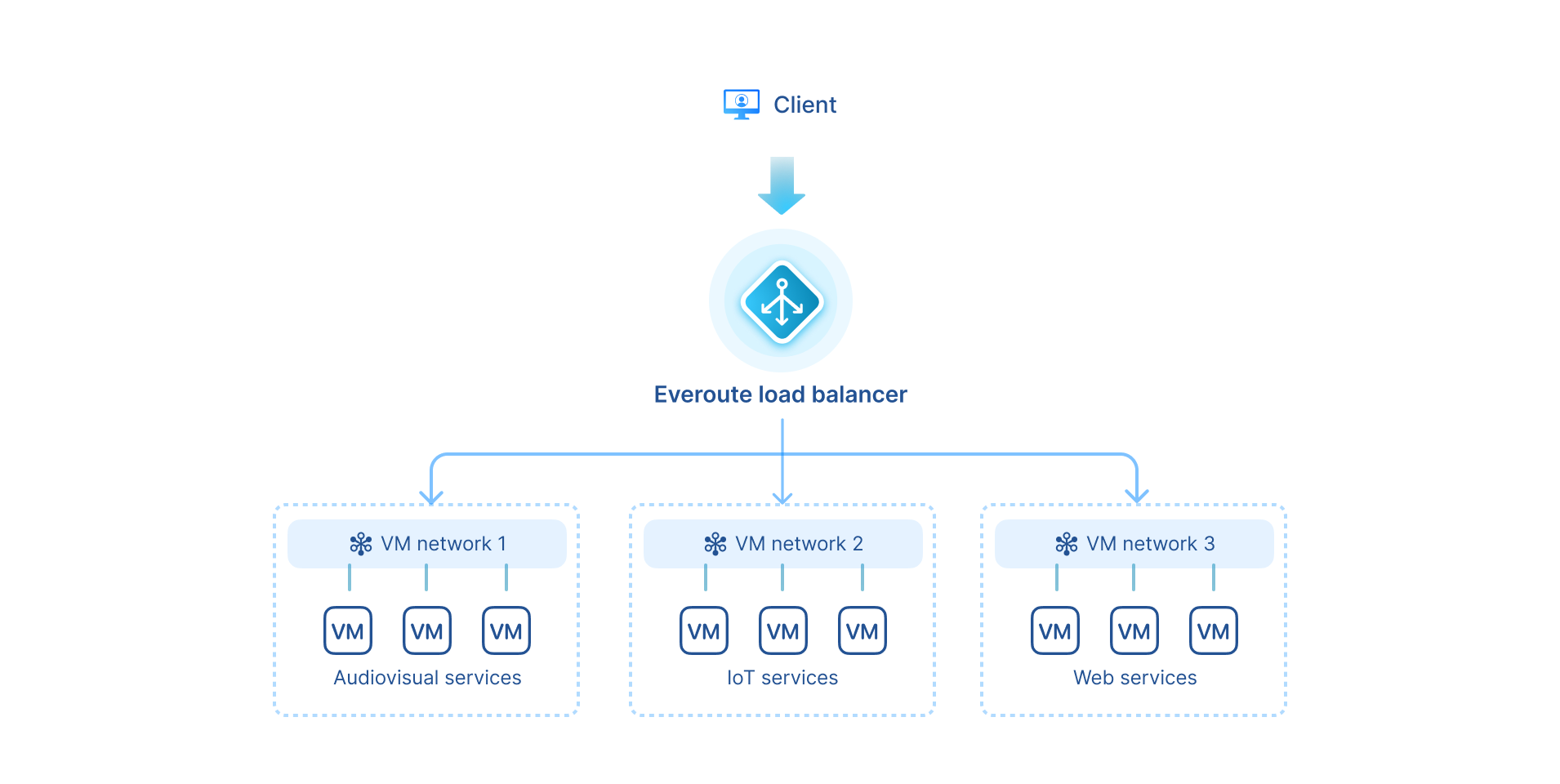Why Everoute Load Balancer
Software-defined. Achieves network virtualization purely through software, with no extra need to purchase, deploy, or maintain dedicated hardware devices or adjust physical network configurations.
Simple operations and maintenance. Integrates load balancing functions into the hyperconverged platform, enabling convenient management of both the infrastructure and load balancer on the CloudTower GUI.
High availability & efficiency. Achieves high availability and efficiency through a combination of active-active and active-standby mechanisms, preventing single points of failure and improving service performance quality.
Flexible adaptation. Provides load-balancing services for applications running in different locations and forms.

